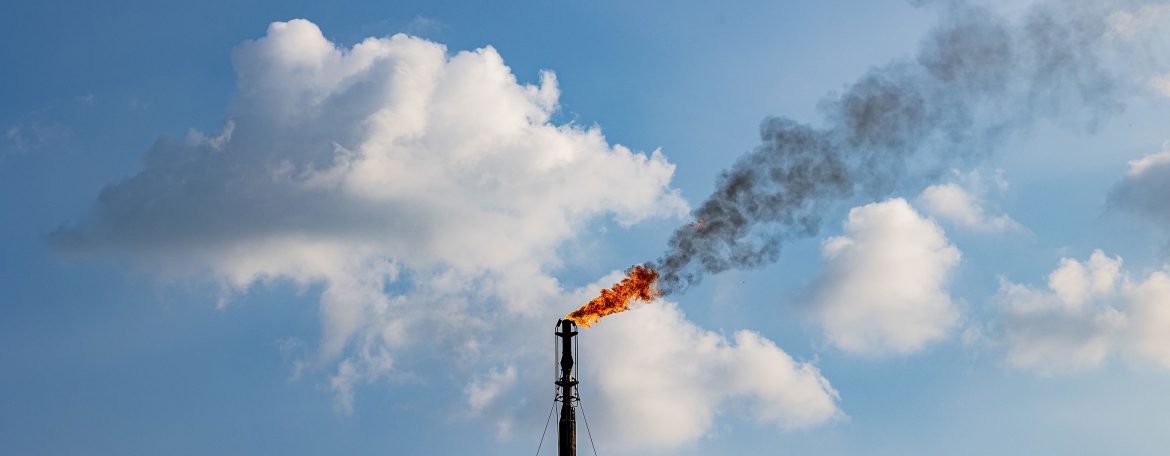Here in this article we discussed the plan of federal Government to cut oil and gas fugitive emissions by 60% in Nigeria.
The federal government plans to cut fugitive methane emissions from the oil and gas sector by 60 percent.
What are fugitive emissions?
During the production and transportation of natural gas (associated or non-associated), components such as valves, flanges, or seals may allow methane to escape into the atmosphere. These emissions are typically referred to as fugitive emissions or fugitive losses.
This is coming as the world is fast moving to a carbon neutral future and as part of its Nationally Determined Contributions (NDCs) policy submitted to the United Nations Framework Convention on Climate Change (UNFCCC) ahead of the 26th Conference of Parties (COP26) summit in Glasgow, Scotland.
Chief Executive, Nigerian Upstream Petroleum Regulatory Commission (NUPRC), Engr. Gbenga Komolafe, made this known while presenting his paper at the National Association of Energy Correspondents of Nigeria (NAEC) Annual Conference 2023, held in Lagos, yesterday. The conference had as its theme: “Nigeria’s Energy Transition: Enhancing investment opportunities & addressing challenges in oil and gas sector.”
READ: Oil and Gas Regulatory Consulting
He explained that the government has also developed guidelines on the management of fugitive methane and Green House Gas (GHG) emissions in the upstream sector to drive the emission reduction and mitigations targets of the NDC, including the establishment of the Energy Transition and Carbon Monetization Regulatory Unit within the Commission to drive the carbon monetization efforts of the upstream sector relaunch of the Nigerian Gas Flare Commercialization Program (NGFCP).
According to Komolafe, the gas flare commercialization program was aimed at driving Nigeria’s target to end routine gas flaring by 2030 in support of the Nigeria Energy Transition Plan (ETP). He explained that said the program would create value from previously wasted gas resources. The program, initially launched in 2016, was relaunched by the Commission last year to aid in curbing the environmental menace of gas flaring while supplying gas to the rapidly growing market.
He said the various initiatives reeled out earlier highlighted deliberate actions taken by the commission in this regard. These initiatives, he said, were geared towards unlocking the full potentials of Nigeria’s upstream petroleum sector, for which the country has begun reaping the rewards.
“Over the next few months, we are positive we shall record a marked increase in the national oil and gas production volumes,” he said, adding that quick-win strategies such as aggressive drive to reactivate shut-in and declining wells would boost production prior to the onset of more long-term initiatives like operations from the new Marginal Field awardees.
He said the commission is also working alongside security operatives to bring a halt to the menace of crude oil theft, which has over the years contributed to a huge loss of production.
Komolafe said with the commencement of projects under the NGFCP, it is expected there would be a rapid decline in gas flaring rates and an increase in gas supply to the domestic market.
He also said the commission would be leveraging technology to achieve its mandate by ensuring all the processes become fully automated, transparent, and accountable in line with the tenets of the Petroleum Industry Act (PIA) 2021.
The Nigerian Upstream Petroleum Regulatory Commission (NUPRC) boss said the commission would continue to collaborate and engage with all stakeholders in a timely manner for the sustainable and environmentally safe development of the nation’s hydrocarbon resources with the goal of ensuring a mutually beneficial environment for Nigerians and all investors in the industry. For instance, the NUPRC, he revealed, has partnered with relevant global players to leverage the carbon credit market mechanism hence improving the bankability of projects under the umbrella of the NGFCP.
Recalling the PIA was enacted to provide fresh legal, governance, regulatory and fiscal framework for the country’s petroleum industry consistent with modern operational and administrative realities, Komolafe said the Act empowered the NUPRC to perform the role of technical and commercial regulator in the upstream petroleum sector, monitoring activities in a manner that would ensure sustainable hydrocarbon exploration and production in a manner that ensures optimal return on revenue for all stakeholders.
He said the PIA also introduced incentives aimed at driving the growth of the nation’s reserves in a bid to attracting more investments to the sector and boost daily production even in this period when the world clamors for a shift in the global energy dynamics.
He said Nigeria was blessed with potential for blue energy, solar, wind, biomass as well as other sources of renewable energy in addition to huge hydrocarbon reserves thereby providing the right mix in the energy transition regime.
“The PIA 2021 had set out a framework to enhance the business landscape of Nigeria’s petroleum industry, as it has provided a more transparent, efficient and investment-friendly regulatory framework for the industry. This renewed disposition reflects the nation’s readiness to attract local and international investors in the oil and gas space.
“Furthermore, in adherence with the provisions of the PIA, the commission is committed to ensuring peace and harmony in host community environment that would guarantee seamless operations in the industry contribute to reducing unit operating cost, create sanity and predictability while attracting investment opportunities,” Komolafe submitted.

